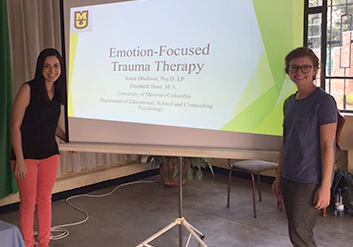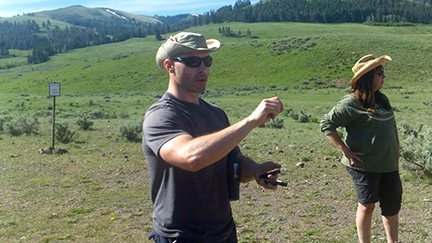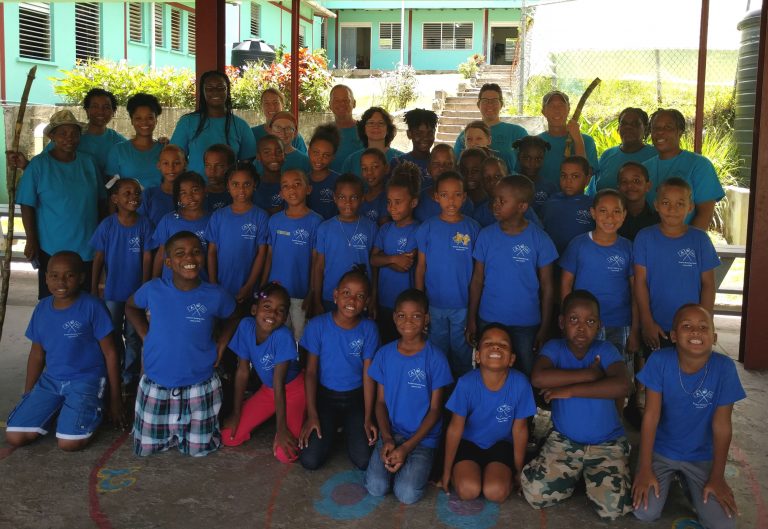MU College of Education Faculty, Students Spend Summer Impacting Lives

A common question at the start of the school year is “What did you do this summer?” A few MU College of Education faculty and students are talking about how their summer break impacted lives all around the world.
ESCP’s Sonia Dhaliwal, assistant teaching professor, teamed up with a graduate student Beth Hunt to give presentations to mental health providers and community members in Rwanda on various counseling theories, skills and treatments centering around complex trauma.
Both are board members of the organization Step Up! American Association for Rwandan Women – a non-profit created to assist women and children in Rwanda who survived gender-based and other violence during the genocide of 1994. In addition to the to the workshops, the Step Up! Organization opened the Nsanga Counseling Center in Butare, which will increase access to community counseling services to support the women who have survived the 1994 genocide.

LTC’s Benjamin Herman, an assistant professor of science education, joined a group of Columbia Public Schools teachers to deliver a place-based curriculum to 80 students focused on Yellowstone National Park contentious environmental issues. The environmental issues were used as a context to teach the students about ecosystem dynamics, sociocultural considerations, perspective taking, and the nature of science.
This year’s topic was the reintroduction of wolves to Yellowstone. Students interacted with actual wolf ecologists who were involved with the wolf reintroduction efforts and outreach with ranchers who had livestock concerns. These interactions were then deconstructed so the students learned about how contentious environmental issues are investigated, resolved and impact ecosystems and diverse groups of people.
“It’s important that all the different groups and their perspectives were represented. This is because the goal was to help students understand that engaging controversial scientific issues goes beyond knowing the content, and also knowing how diverse groups perceive and are impacted by those issues” Herman said.
SISLT’s Denice Adkins, associate professor, attended a six-day reading camp in Laborie, St. Lucia, with students Sarah Colbert, Lauren Bielecki and Jessica Robey. The event included storytime activities, reading education and entertainment to 31 students.

After the camp, the SISLT delegation visited the headquarters of the Public Library of St. Lucia. The Public Library of St. Lucia has 17 branches and roughly 70 employees, but hasn’t had an acquisitions budget since 2005. Despite this, the library has an extensive local studies collection and is the only source of indexing for local periodicals.